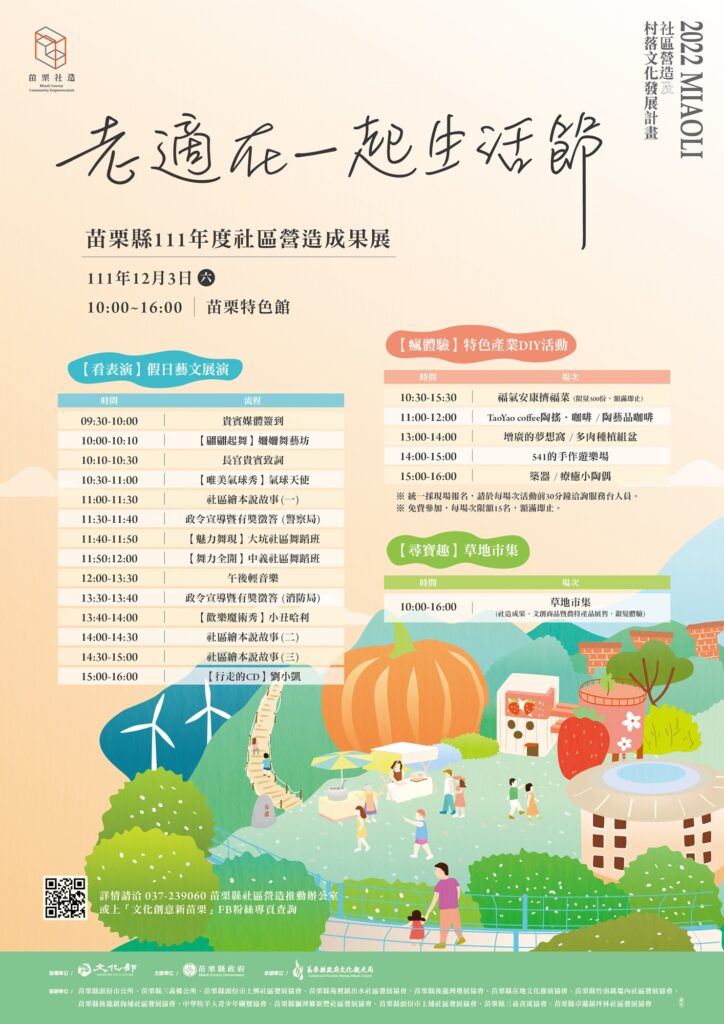快上計畫網站 現在報名 明年出發
https://www.animlab.yuntech.edu.tw/sposad/
五組別共 34 個全球頂尖設計學府培訓名額
把握時間 即刻起至 5/31 23:59:00
徵選受理報名中!
∎ [數位動畫]
∎ [視覺傳達設計]
∎ [時尚設計]
∎ [產品設計]
∎ [建築與景觀設計]
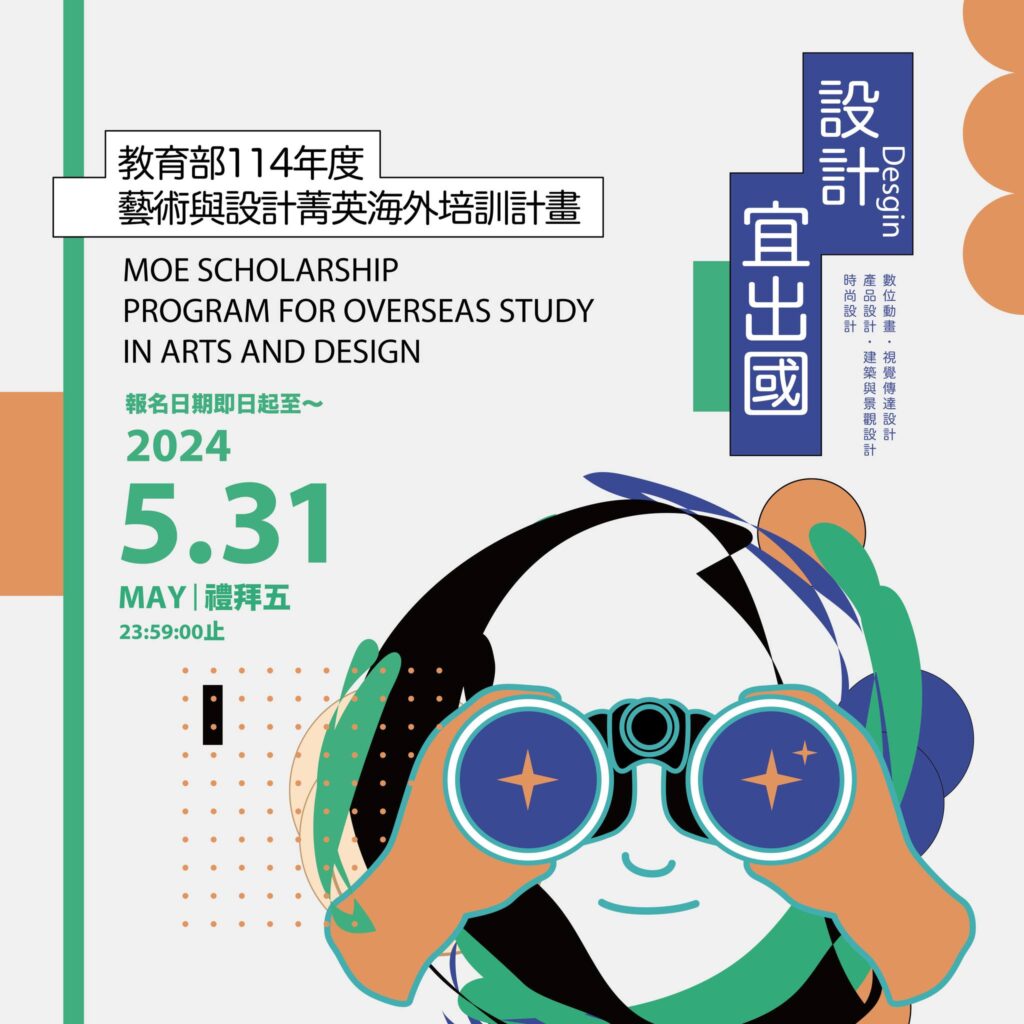
所有即時最新訊息!
快上計畫網站 現在報名 明年出發
https://www.animlab.yuntech.edu.tw/sposad/
五組別共 34 個全球頂尖設計學府培訓名額
把握時間 即刻起至 5/31 23:59:00
徵選受理報名中!
∎ [數位動畫]
∎ [視覺傳達設計]
∎ [時尚設計]
∎ [產品設計]
∎ [建築與景觀設計]

詳細資訊: https://bhuntr.com/tw/competitions/852s9iuzbzkoc5rnh6
官方網站: https://rlsd.internationaldesigncomp.com/competition-event/taiwan-region-2024/
SLOW FASHION IS THE NEW TREND
年輕設計師及新一代消費者,無疑將引領未來時尚趨勢,今日年輕的世代更加在意環境議題,開始認真地反思快時尚的歪風。而皮革,從畜牧產業的副產品,將一躍成為循環經濟議題的明日之星。我們迫切的需要年輕一代的學生與設計師,為將來的時尚與皮革產業帶來夠多元更新的觀點,從皮革的耐久性,永續性,具循環經濟等多功能性特點切入,思考皮革如何產生新的創意發想與運用,將皮革材料應用於現在與未來的時尚市場。
比賽類別包括服裝、鞋類、配飾等三大類,材料使用上,以使用牛皮等天然皮革為主,皮革材料可以單獨使用,亦可以與其他天然材料結合搭配使用(如木材、金屬、天然纖維等),惟牛皮材料比重不得少於作品佔比百分之50%,並不得使用皮草及非天然合成皮料。塑膠或是合成材料只能在沒有天然替代材料的狀況下使用。作品須從美觀、功能性、結構強度與耐用性等多方面的完整考量。
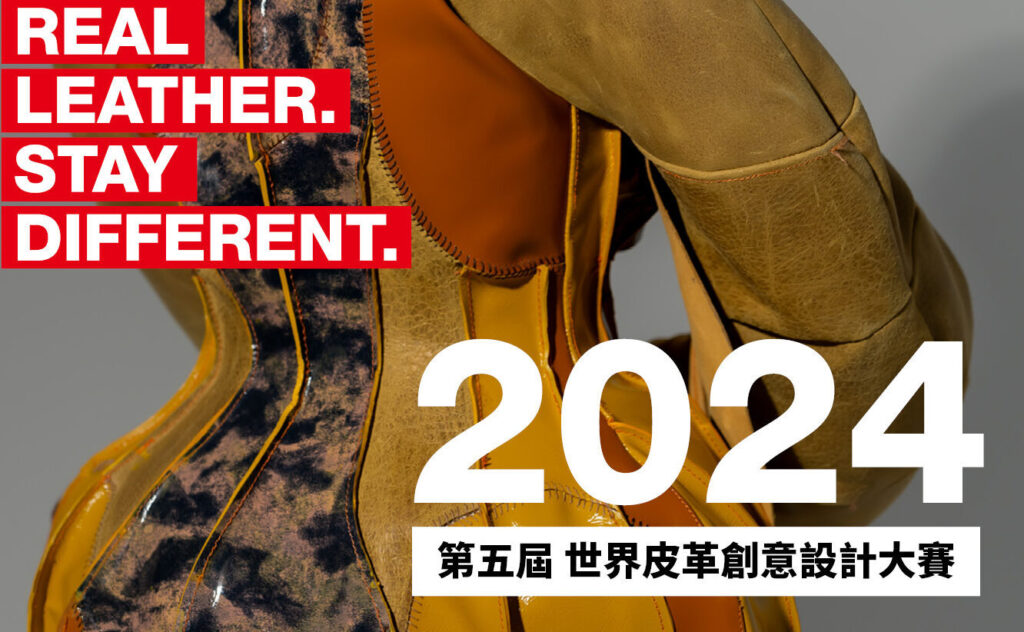
詳細內容請見: https://idsfc2024.wixsite.com/index?fbclid=IwAR2Xnqyu_JF3E3nwjTdprPVbXbidkNt23Pzah5X3xLjjFdCj5jl6XoE09Nw
國立雲林科技大學設計學院設計學研究所,於設計教育與研究、產官學合作上致力耕耘。為增進設計研究能量,2014年起舉辦「國際設計研究論壇暨研討會」,至今為第十一屆。本研究論壇暨研討會為設計教育及實務等相關領域人員的研究成果發表與互動交流之平臺。
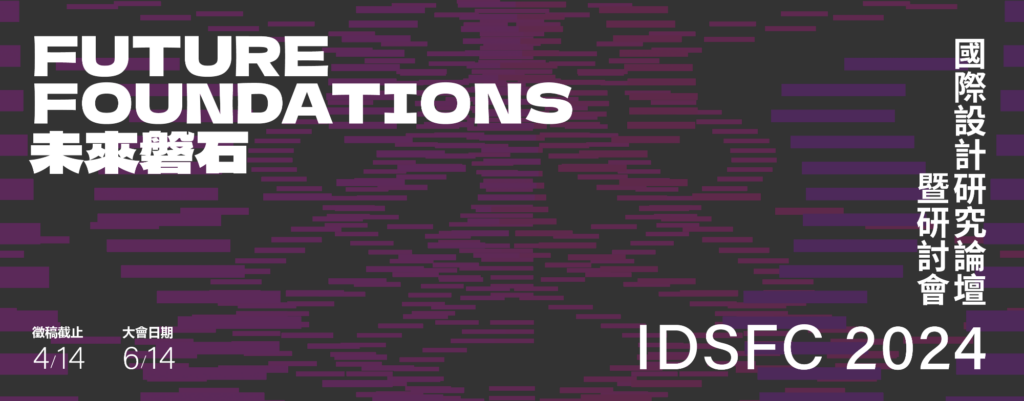
詳細資訊請見: https://tlda.lighting.org.tw/
為加速我國產業結構優化,協助台灣傳統照明產業轉型,行政院推行「傳統產業維新方案及推動計畫」,期許透過注入設計美學、文化意象等維新元素,以提升台灣照明產業之價值。「鐙烜獎」燈具設計競賽自2015年首辦迄今已邁入第十屆,獲獎作品充分落實創意美學元素,本獎項儼然已成為台灣照明燈具設計首屈一指之競賽指標,亦有諸多學子投入照明產業大展才華,並將新一代創新設計思維導入傳統燈具燈飾產業,激發出無限潛力與未來希望。台灣區照明燈具輸出業同業公會積極承擔業界領頭羊之責任與期許,扮演產業界資源與學術界人才之媒合橋樑,甫自2020年開始承接此競賽,將「燈具設計」定調為培育新一代設計人才進入照明業之核心軟實力,將燈具導入智慧化、ESG、人因、健康節能、淨零碳排、或與感測器結合等技術概念,並將外觀美學與概念技術-理性與感性之完美融合,定調「光品質」作為活動設計主軸,希冀藉此強化台灣照明產業競爭力及提升國際能見度。
一般組:創新照明系統設計類別限定大專院校以上在校學生及應屆畢業生免費報名參加
企業出題組:大專院校相關系所師生、設計師、自由發明者及對設計閱讀檯燈有興趣者免費報名參加。
註1:參賽者可以個人或團隊報名參賽,作品件數不限。
註2:團體參賽隊伍,主辦單位以「代表人」為聯絡對象。
註3:學生參賽團隊同一件作品若同時符合兩種組別,皆可投件參賽。
一般組:創新照明系統設計類別
舉凡LED一般照明、室內外照明、植物照明、節能排碳照明設備等燈具均可。
燈具導入智慧化、ESG(環保永續)、人因、健康節能、淨零碳排、或與感測器結合等技術概念為佳。
企業出題組:擁抱智慧生活,啟動健康之光-閱讀檯燈整合設計
本屆由喜光有限公司命題,請參賽團隊依據指定題目創作;從後疫情生活型態發想,迎接智慧生活新時 代,導入人因智慧、健康舒適觀念,進而設計出符合「智慧健康生活」之創新閱讀檯燈產品之整合設計,參賽者可透過檯燈設計整合出消費者更舒適的生活空間訴求,期望透過今年的設計競賽活動,尋求用嶄新的思維來創造出未來更能貼近消費者生活的檯燈整合設計,並提出具體且可行的解決方案。
1.以創造智慧健康為發想起源,發揮您天馬行空、新穎獨特的創新概念設計。
2.透過家庭生活觀察及現有檯燈使用狀況來發掘消費者的不滿點或新需求,並具體於設計展開前做明確定位後,再提出設計構想方案。
3.設計核心概念:如智慧控制、健康人因、舒適光源機能、永續等趨勢,導以學齡設計、閱讀設計、樂齡設計等整合條件,為現今檯燈導入迎向永續生活的新概念。
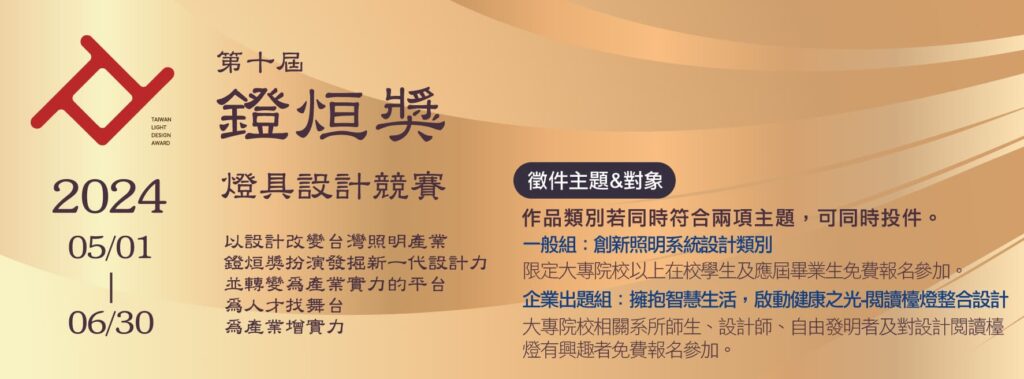
各位同學大家好:
新的學期即將開始啦,見習助學金也陸續開放申請,相關期程如下說明,歡迎同學們踴躍提出申請,謝謝大家。
自112年起因應教育部措施,如欲申請見習助學金者,需搭配國立聯合大學深耕計畫弱勢學生助學辦法中之另一項助學金共同選擇,例:見習助學金+職涯就業探索與自主學習助學金、見習助學金+證照準備助學金,可依同學們之需求自行搭配。如無申請見習助學金選擇其他項目者,亦須同時選擇兩項做申請。
※本學期申請期間:113年2月19日(一)-113年3月8日(五)。
※本學期補助月份:113年4月-113年6月,共3個月。
※本學期每月份之補助金額與見習時數,待申請截止後,將召開會議依報名人數與本年度經費由委員核定後發簡訊通知。
另,本學期再次招募見習同學至儒耕慈善發展協會見習,歡迎對食農教育有興趣的同學報名參加喔!如果課表太滿沒有時間於校內見習的同學,這邊可以利用假日時間來見習,本年度預計補助4月-12月,共9個月。
本處預定於113年3月6日(三)舉辦113年度深耕計畫儒耕見習助學金說明會,報名網址: https://reurl.cc/nrxdM8
◎這會是本年度長期的見習機會,一年只需申請一次。
◎補助月份較校內見習時間長→113年4月-12月(含暑假7、8月份)
◎每月見習時數28小時,每月1萬2千元,利用假日時間見習
◎申請資格:與申請校內見習資格相同
◎通過後每月需繳交1份學習單與出勤紀錄表
◎申請期程:即日起至112年3月21日(二)12:00截止報名。
◎備註:此見習與校內見習只能擇一參加。
相關辦法與各項申請單詳如附件,請參閱。
承辦人:學務處深耕計畫附錄 黃鈴雅小姐
TEL: 037-381202
E-mail: linya354@nuu.edu.tw
Office: 八甲校區學務處學務長室
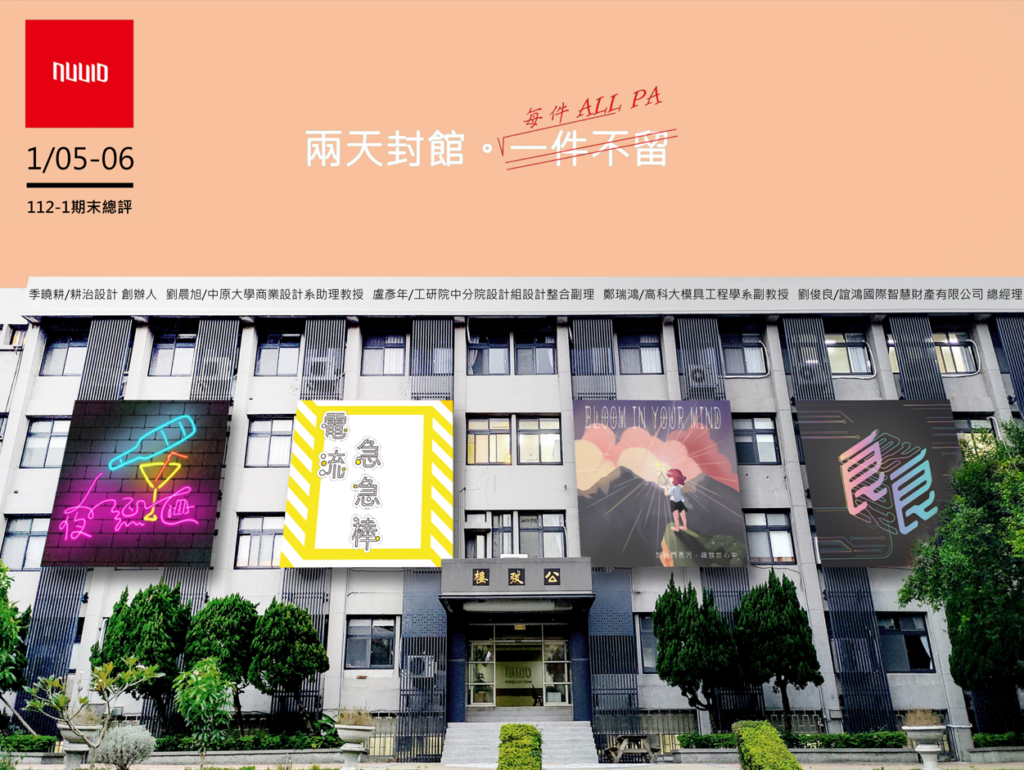
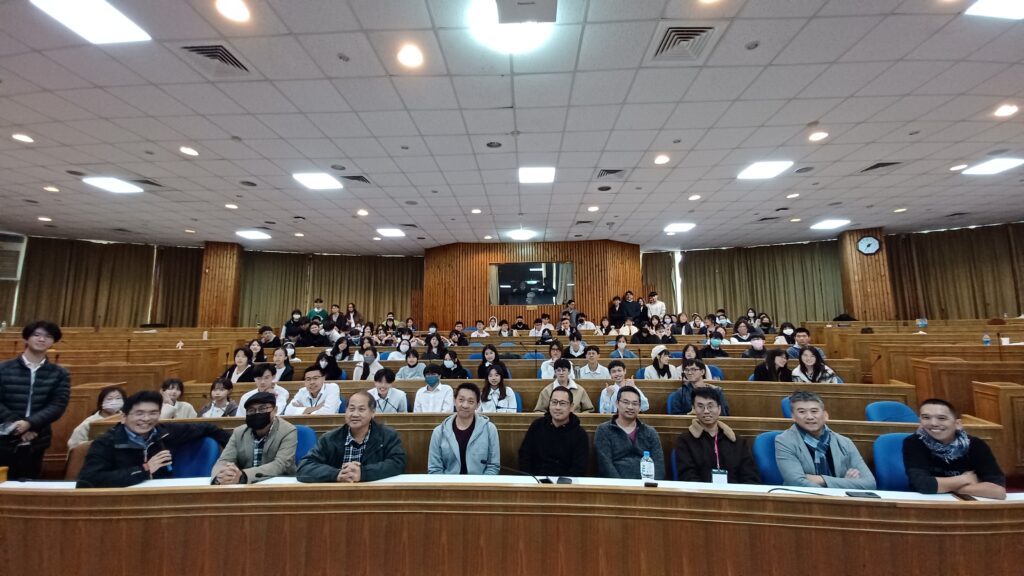
展覽名稱:奇幻動物森林 樋口裕子展
展覽期間:2023/12/30(六) -2024/4/7(日)
開放時間:週一至週日10:00-18:00(17:30停止售票及入場;除夕、大年初一及228休館)
展覽地點:中正紀念堂 2、3展廳(台北市中正區中山南路21號)
客服電話:02-2649-1689 #2 每日09:00-18:00(例假日中午休息時間為12:00~13:00)
主辦單位:聯合數位文創、朝日新聞社
協辦單位:國立中正紀念堂管理處
主要贊助:中國信託銀行 CTBC BANK
☆ 海外首站,集結日本巡迴展近千百件豐富展品一次欣賞。
☆ 可愛怪奇的細膩創作,獨特魅力讓人忍不住一看再看。
☆ 全新展覽主題,打造專屬台灣站特有的奇幻動物森林。
展覽介紹
從日本到全世界挑動人心的超人氣畫家樋口裕子(HIGUCHI YUKO)大型特展首次來台,展區集結近1000件精選作品,包含繪本創作、海報設計、聯名合作等經典繪畫手稿、與樋口裕子長年合作的布偶藝術家今井昌代所創作精緻生動的毛氈玩偶以及台灣限定拍照場景,以溫柔細緻的筆觸、復古的色彩運用與充滿想像力的表現風格,帶領台灣觀眾進入奇幻的異想世界。
關於樋口裕子(HIGUCHI YUKO)

畫家、藝術家。以東京為中心,持續舉辦創作活動。作品常以貓咪、鳥類、蘑菇等動植物作為主題,現實與幻想交錯而成的繪畫呈現,創作出樋口裕子獨有的世界觀。曾出版繪本「貓咪」系列、「小情書」、「GUSTAVE君」及畫集「樋口裕子畫集 CISRCUS」、「BABEL Higuchi Yuko Artworks」等數本經典著作,也吸引了多個知名品牌邀請合作,其中以2018年開始的GUCCI聯名系列受到許多人關注,近年則大量投入電影海報的作品創作。
展覽精彩亮點
☆ 經典著作的創作歷程與細節

描繪貓咪玩偶與動物們之間交流的「貓咪系列」、精緻小巧更富含豐沛情感的圖文集《小情書》、頑皮惹人愛的奇妙角色物語《GUSTAVE君》⋯等至今曾發行製作的知名著作原畫手稿,從故事主題介紹到內頁圖文設計,逐一完整呈現,深入欣賞樋口裕子老師多年創作生涯中經典作品。
☆ 驚奇富含趣味感的立體陳列

畫筆下的圖像躍出平面,幻化成布偶藝術家今井昌代所創作可愛的毛氈玩偶,透過巧妙的縫製手法搭配樋口老師親自手繪的臉部表情,角色們彷彿被注入了生命並在眼前上演起了故事情節。除了毛氈玩偶,展場更是包含木雕迷你書、日式掛軸與屏風等各式各樣的立體展示物,透過多種質感呈現感受每個作品的不同之處。
☆ 為台灣站特別繪製的新作品

以全新展覽主題「奇幻動物森林」,樋口裕子老師特別為台灣繪製了新的主視覺與台灣限定票圖,主視覺更是融入了在台灣特有氣候下所生長的植物、台灣人的性格、台灣傳統花卉圖案等對台灣的印象,而老師筆下這些經典的動物角色們以「換上可愛的衣服,準備出發去台灣!」的意象呈現於台灣站限定票券設計中。
☆ 獨特衝突感的暗黑美學系列

只在東京樋口裕子藝廊販售「Fear」中登場的女孩、蝸牛、蘑菇等元素,恐怖風格表現結合可愛怪奇圖樣,製造出屬於樋口風格的獨特反差感;以荷蘭畫家耶羅尼米斯.波希Hieronymus Bosch和老彼得.布勒哲爾Pieter Bruegel的作品為藍本重新詮釋的《BABEL Higuchi Yuko Artworks》作品集,處處可見詭異且謎樣的生物,彷彿到了另一個幻想世界,樋口裕子老師的作品不只有奇幻,更是散發出些微詭譎卻又迷人的美麗氣息。
☆ 與各大品牌的夢幻聯名合作

寶可夢人氣角色「伊布」、白泉社《MOE》雜誌封面、Holbein繽紛百色水彩⋯等知名品牌的聯名合作;《風之谷》等知名電影的海報再創作,將充滿想像力的手繪圖像,延伸至商品、海報及書籍封面設計,展現更多不同風貌的作品。
2023-12-15 23:15 詹筱苹
THE哆啦A夢展台北2023,於2023年12月16日至2024年4月7日在中正紀念堂1展廳展出,展覽將以「我心中的哆啦A夢」為題,邀請村上隆、奈良美智、蜷川實花等28組日本知名藝術家,創作屬於他們的哆啦A夢,攝影師梅佳代更親赴THE哆啦A夢展現場,為展間手繪哆啦A夢與台灣專屬地景,更別錯過百項日本進口周邊與台灣限定販售商品,來展場尋找並帶走各種哆啦A夢。這裡為大家整理4大THE哆啦A夢展台北2023看展策略、與村上隆、奈良美智、蜷川實花等28組藝術家作品必看重點:
>> 看更多【2024展覽】
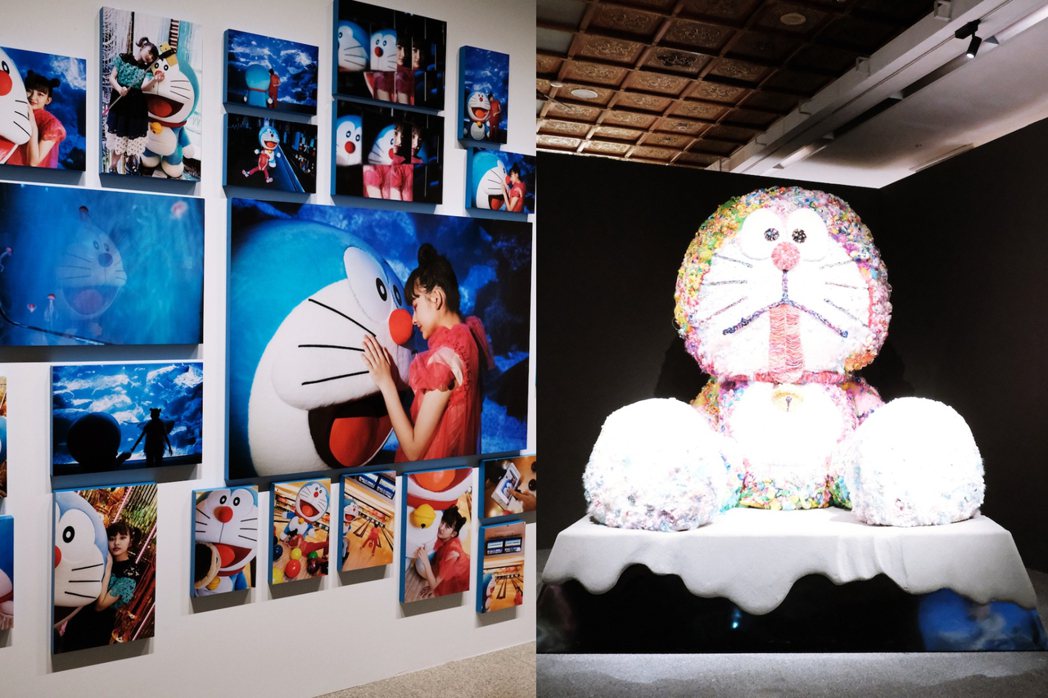
「THE哆啦A夢展」2002年在日本首次展出,並在日本各地巡迴。這個展覽邀請28位跨界日本藝術家,請他們以「我心中的哆啦A夢」透過自己的創作風格,創作對哆啦A夢以及「未來」的想像。THE哆啦A夢展雖然推出已久,但巡迴展多半只在日本各地,台灣站是難得的海外巡迴展出,重點是居然可以一口氣看到如此多日本知名藝術家作品集結(超強沒有之一),不需要遠赴日本,就能看展、帶回滿滿的限定紀念品。
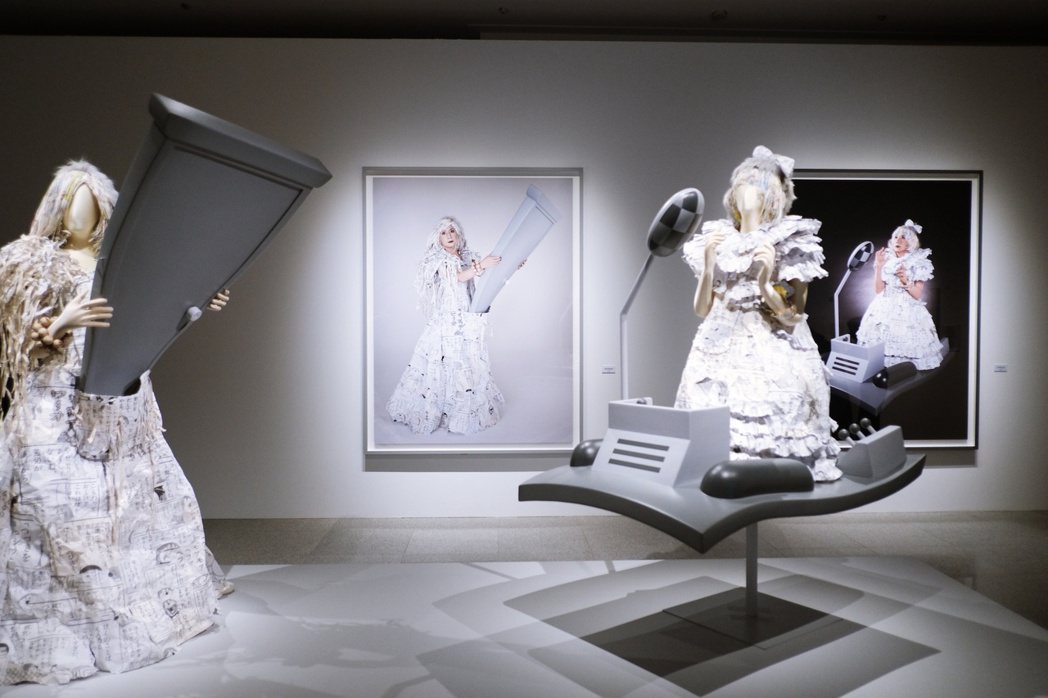
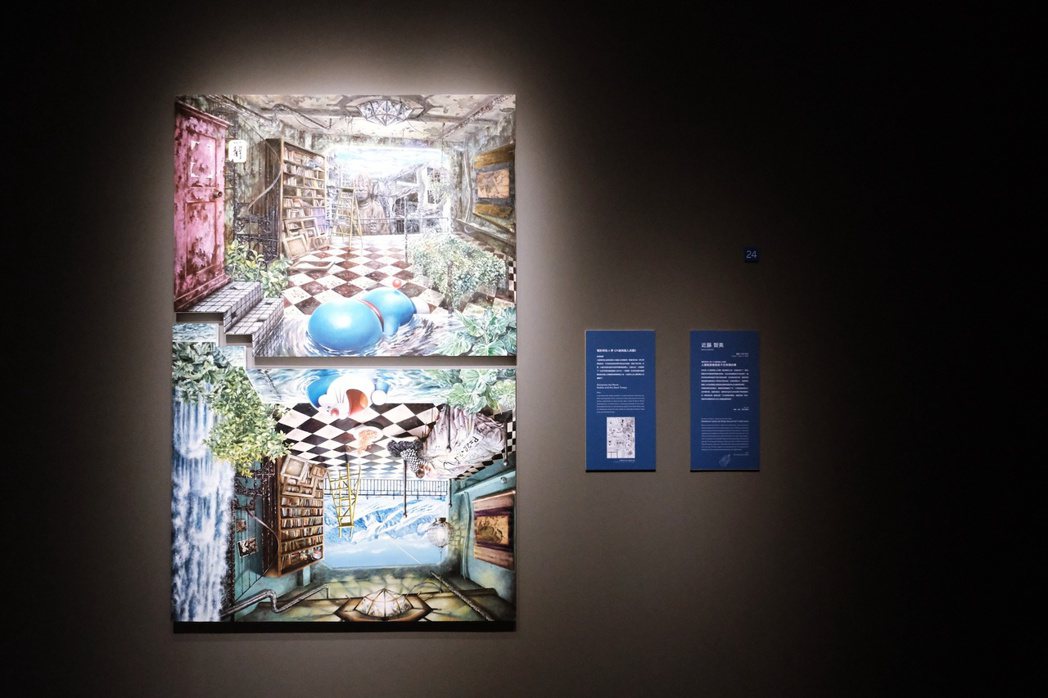
是的。由28位藝術家、以「我心中的哆啦A夢」為題展開的創作,是巡迴展的重要內容核心,甚至這次巡迴台灣,在中正紀念堂展間為每一位藝術家隔出個別空間的規劃,也是由日本策展單位執行布展(非藝術家親自布展),意即在場地允許的狀況下,走進展場能體驗到與日本同樣的觀展經驗。
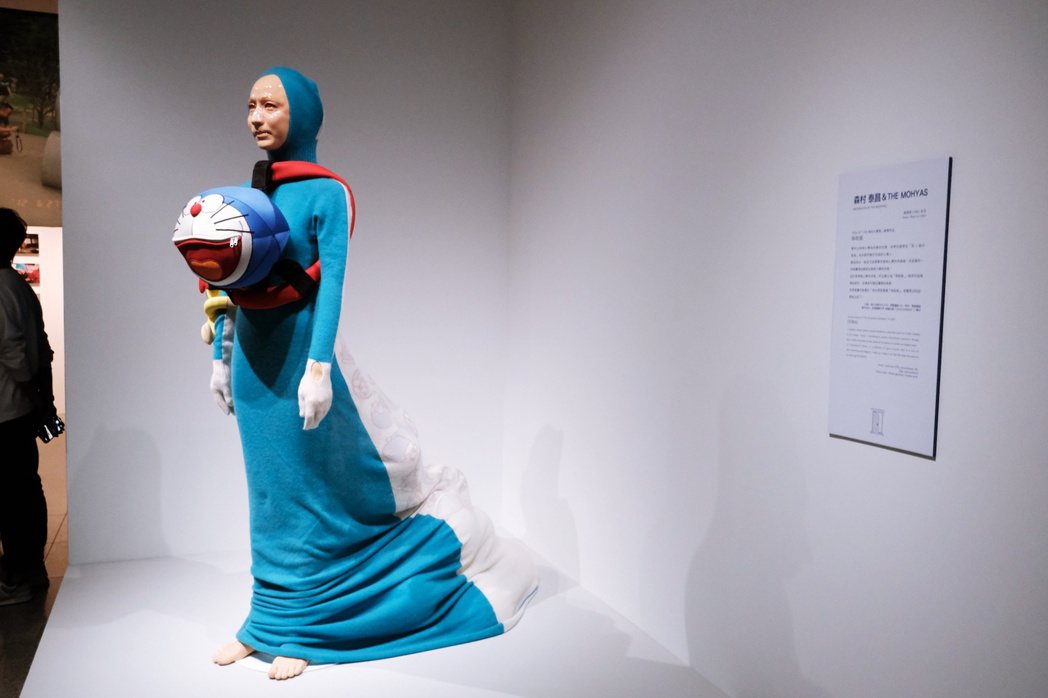
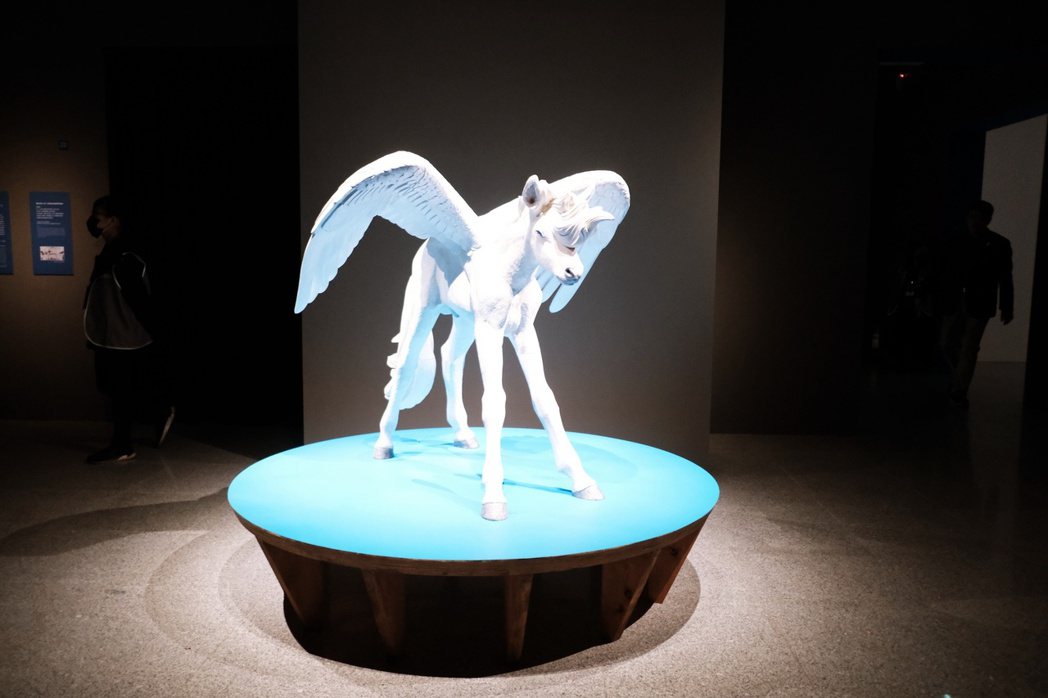
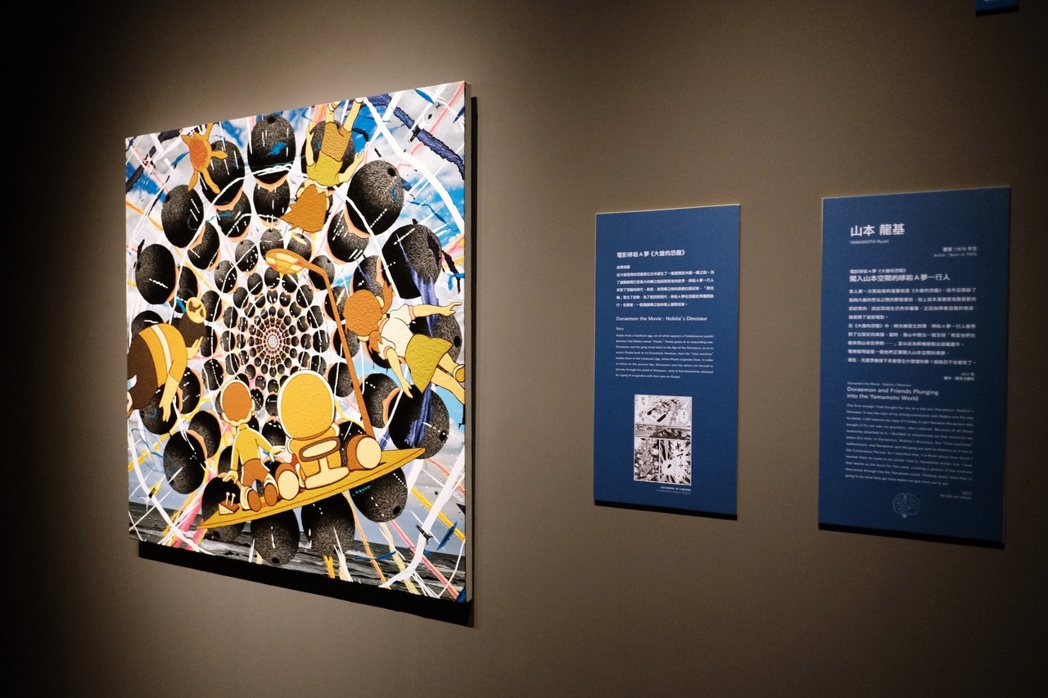
幾乎沒有。之所以說幾乎,是因為親自來台的攝影師梅佳代,在自己的展間中手繪哆啦A夢與台灣專屬地標與簽名,梅佳代表示「我從小就是哆啦A夢迷,當我被邀請參與展覽時,我思考了很久到底要展出什麼,後來我發現我從小生活中就充滿哆啦A夢,而我又是攝影師,不如向大家展示我生活中的哆啦A夢們。」梅佳代本人就跟她的作品一樣超級有趣,她還自己補充說道「如果我有時光機,一定會回到過去跟自己的小時候炫耀,現在的自己可是哆啦A夢展的藝術家之一!」
整個展場佈展的方式也都與日本展出時相同,以梅佳代展間為例,在入口處也是掛著哆啦A夢頭的可愛影像,超級建議走進梅佳代展間,細細看她在每個角落畫了哪些有趣的小東西,她也坦言,小時候真的太喜歡哆啦A夢,曾經反覆練習畫過,但其他角色畫起來沒這麼像,請大家務必見諒,畢竟她是攝影師不是畫家,希望大家不要太苛責她的畫風。
她擅長凝結日常生活中令人莞爾一笑的瞬間,2023年僅22歲便在東京舉行個展,2007年獲得「木村伊兵衛寫真賞」而廣為人知。她數十年來的作品,都有獨特的梅佳代式幽默,即使是「我心中的哆啦A夢」也看到讓人忍不住笑出來,這就是梅佳代的究極魅力(誰看誰愛她)

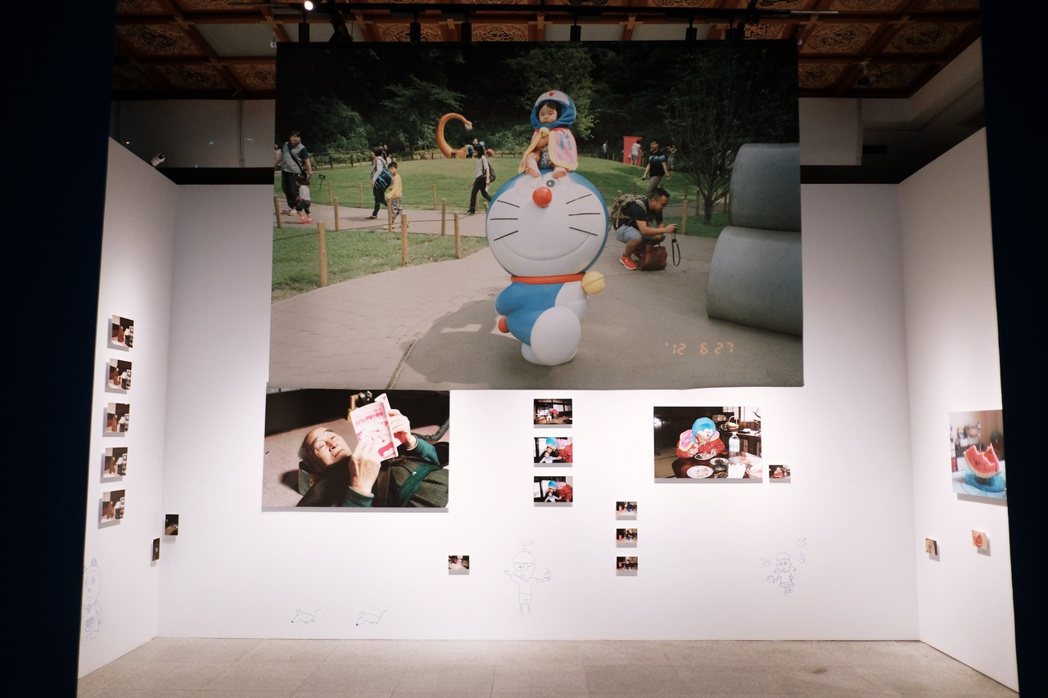
這個展覽邀集各界藝術家,作品包含繪畫、平面攝影、雕塑、複合媒材、立體裝置等,每一件都富含藝術家自己對哆啦A夢的情感。展間規劃也沒有刻意依照藝術品類型、藝術家類型分區,非常推薦大家可以給自己一個完整的時間,走進展間,慢慢的欣賞每一件作品。因為哆啦A夢是一個大家都非常熟悉的角色,無論作品形式為何,一定都能找到自己與藝術家間的共鳴,甚至能找到自己最喜歡的那一件(最後可以到禮品中心把相關限定周邊帶回家)。
當然,如果真的不知道從何下手,除了梅佳代,知名藝術家作品肯定不能錯過:
這件作為展覽主視覺的村上隆作品,甚至在中正紀念堂展覽入口還做成大型看板讓大家可以拍照留念,絕對是展場中最重要的作品之一。這幅結合村上隆《花》與《哆啦A夢》在繽紛花朵中交織出著名漫畫場景,現場將以高3公尺、寬6公尺的巨幅畫作,畫面複雜陳度真的很值得帶走紀念商品回家細細觀賞。
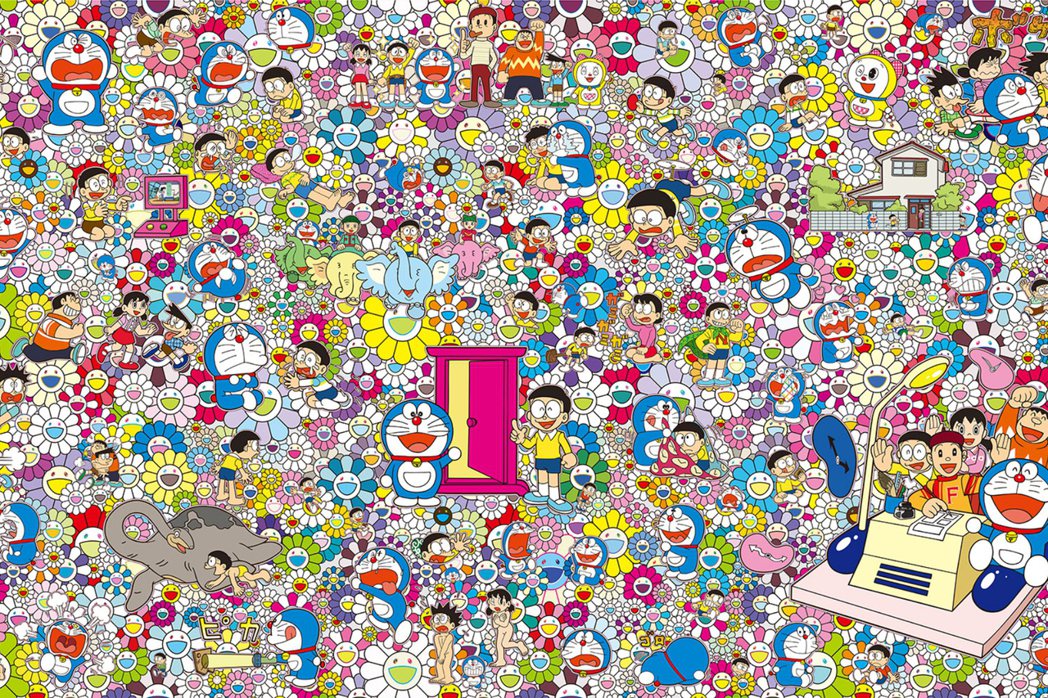
在台灣備受愛戴的奈良美智,也有專屬展間,不能錯過他以小女孩形象,重新詮釋他心中的哆拉A夢,展間裡也有滿滿奈良美智畫作與手繪稿。
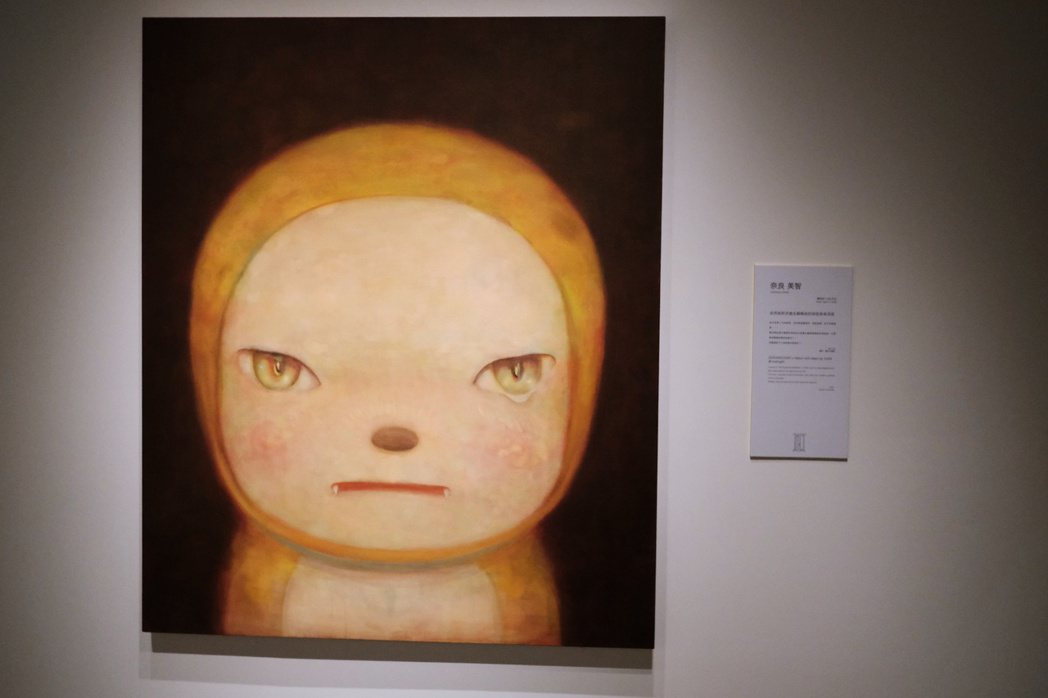
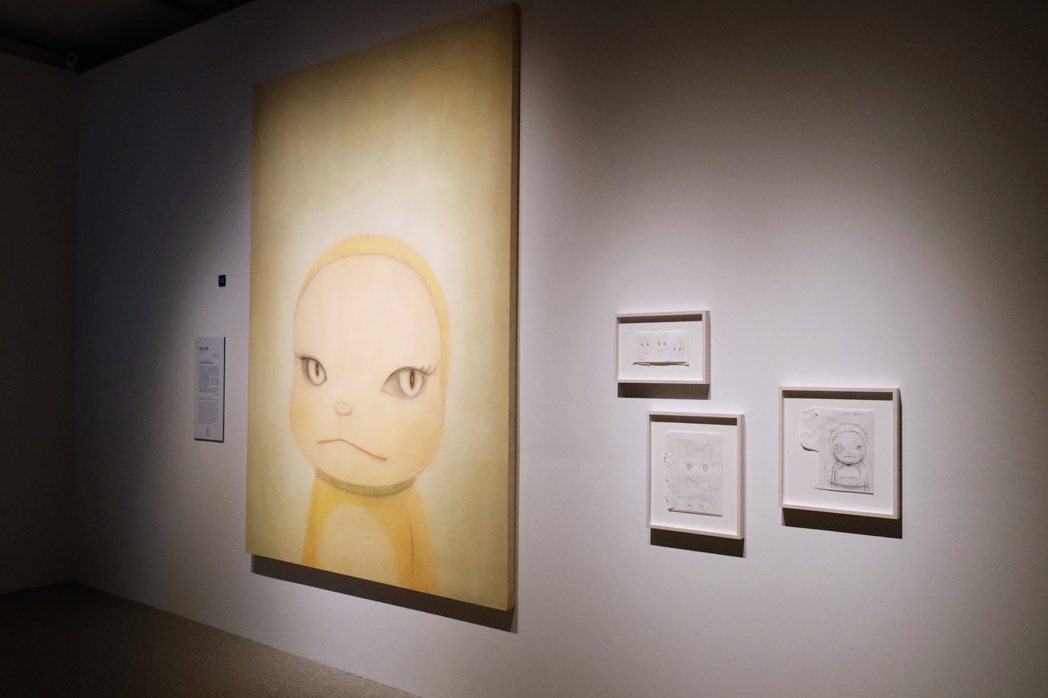
攝影師蜷川實花華麗繽紛的攝影風格,也在她的哆啦A夢作品中重現,在這裡可以看到蜷川實花風格的哆啦A夢。
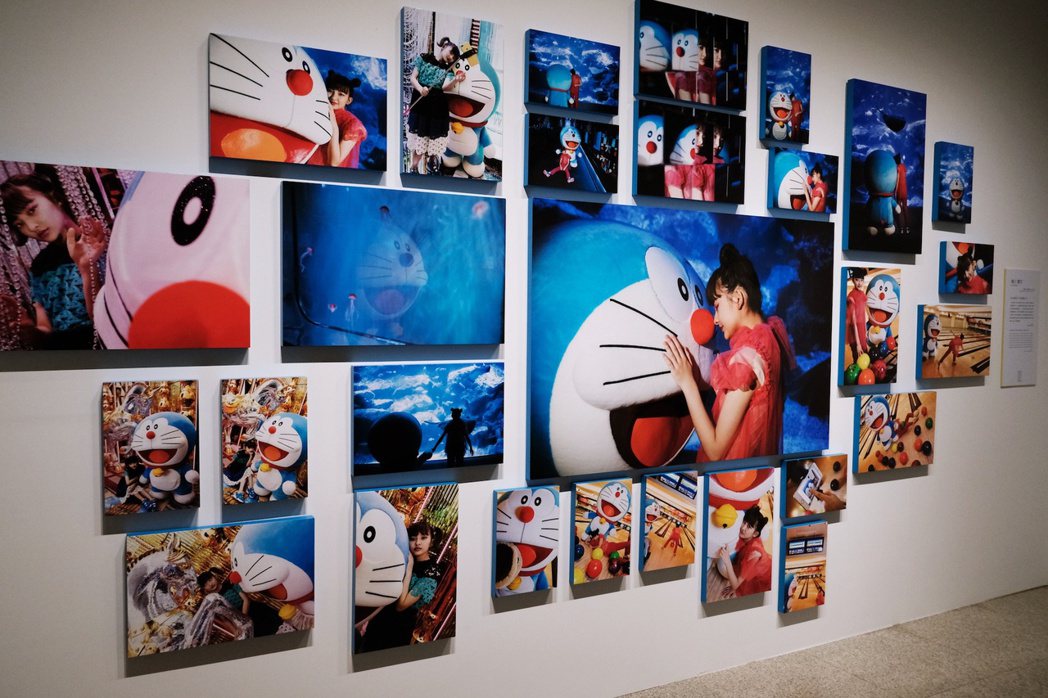
在展間的最後,絕對不會錯過超吸睛的巨型哆啦A夢「終極兵器」,這是增田賽巴斯汀蒐集世界各地繽紛媒材拼貼出的巨大哆啦A夢,藉以呈現世界各地不同的色彩。非常推薦近距離觀看「終極兵器」,看增田賽巴斯汀如何以各種不同的媒材,拼出絕美的桃紅哆啦A夢。
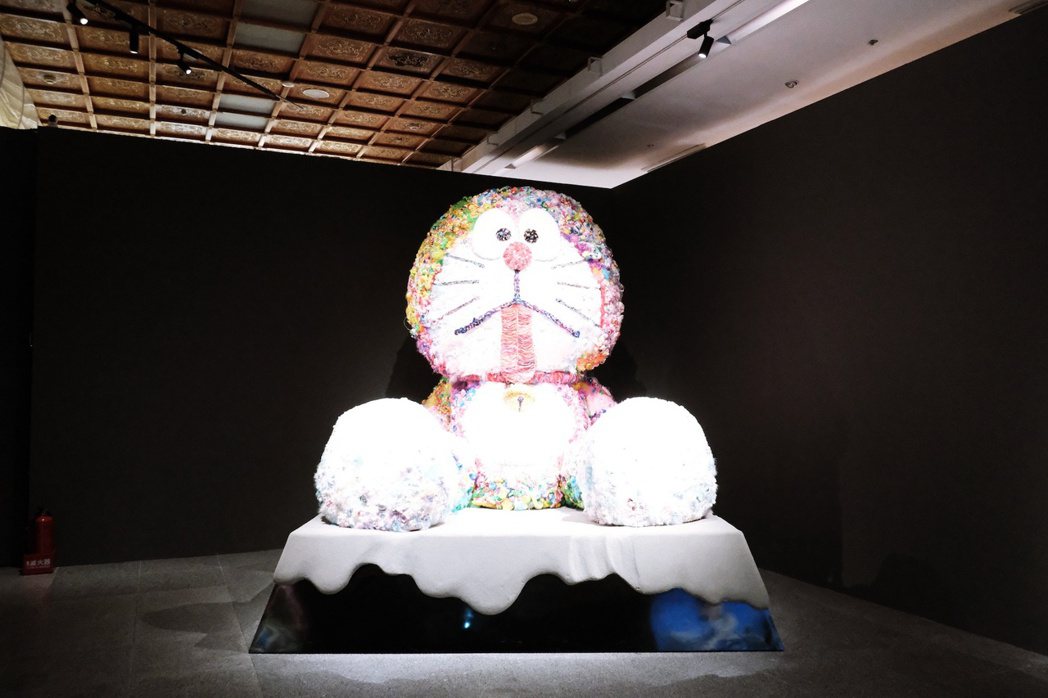
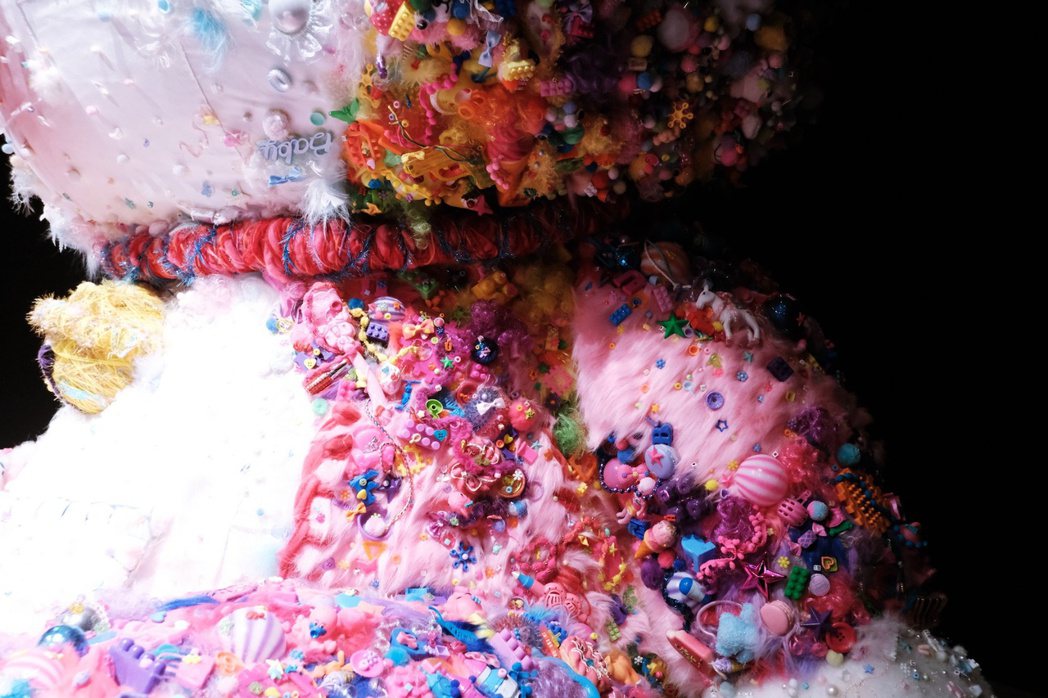
這是坂本友由以電影「大雄的宇宙小戰爭」為靈感繪製的巨幅美少女靜香,畫作高達3公尺以上。現場聚焦在作品上的燈光,讓站在畫作前觀看的人,在巨幅畫作前變得非常突出,是大家搶著拍照打卡的重要作品之一。
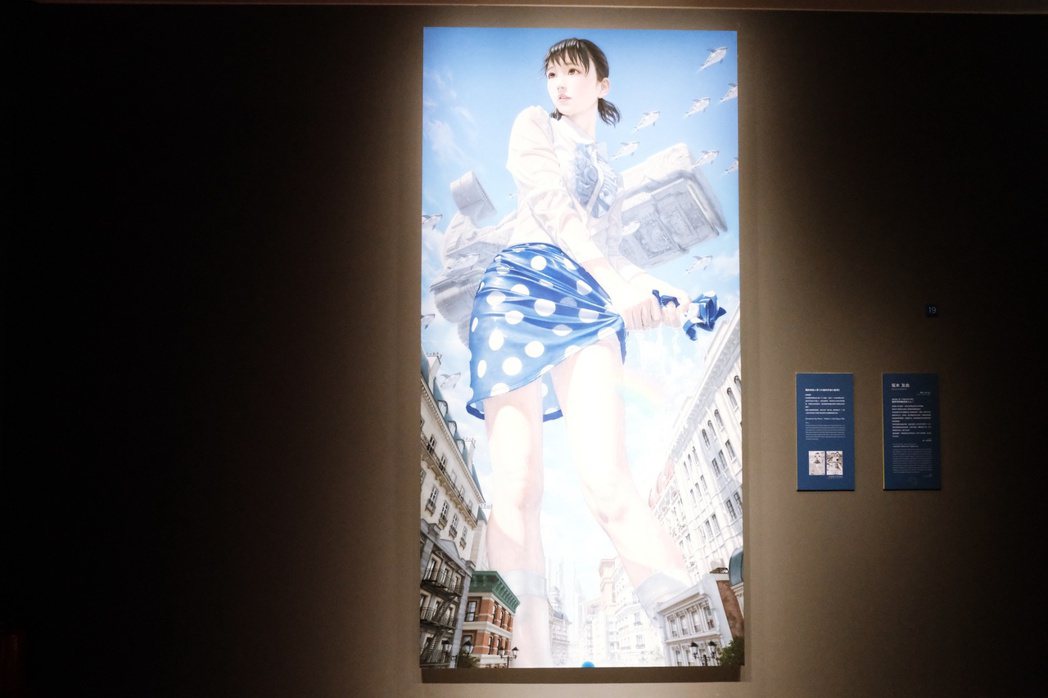
這是藝術家想像靜香一行人在洞窟裡的原始面貌,利用皮革拼接,創作出5公尺高的作品。展覽現場以有如洞穴般的長型展間,展出這幅作品,在現場看展的感受度格外沈浸。
【藝術家專訪】藝術家鴻池朋子用皮革畫出覺醒的靜香,邀請大家詮釋不同的哆啦A夢世界觀
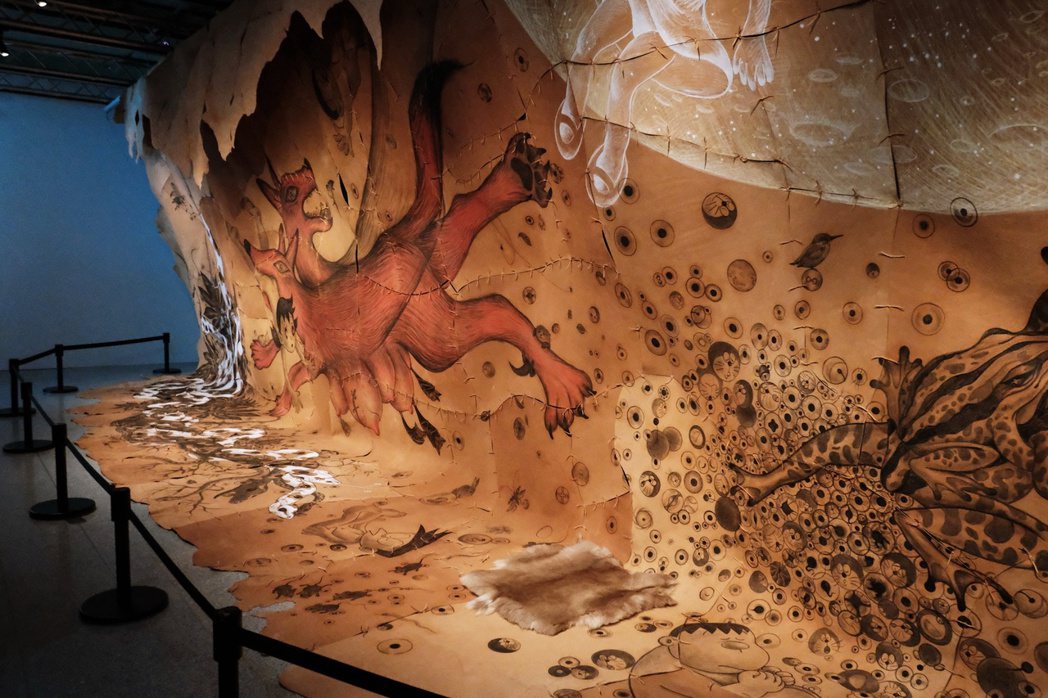

THE哆啦A夢展台北2023
日期|2023年12月16日至2024年4月7日
休館日|除夕2月9日、初一2月10日、2月28日。
時間|10:00~18:00
票價|平日$450、假日$470
地點|中正紀念堂1展廳(大孝門側)
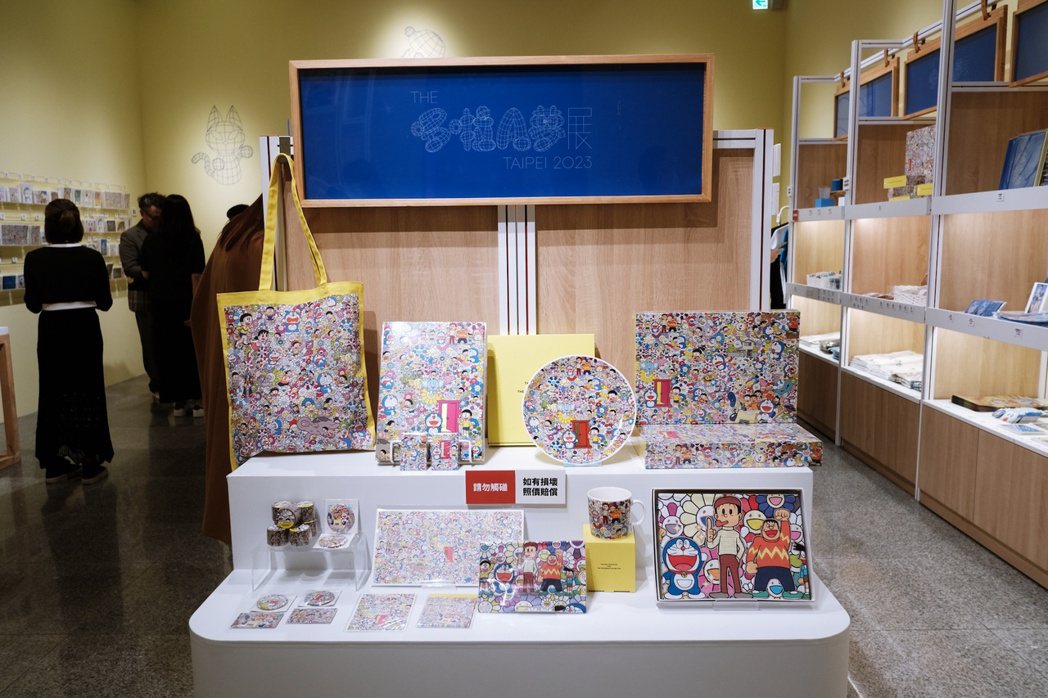
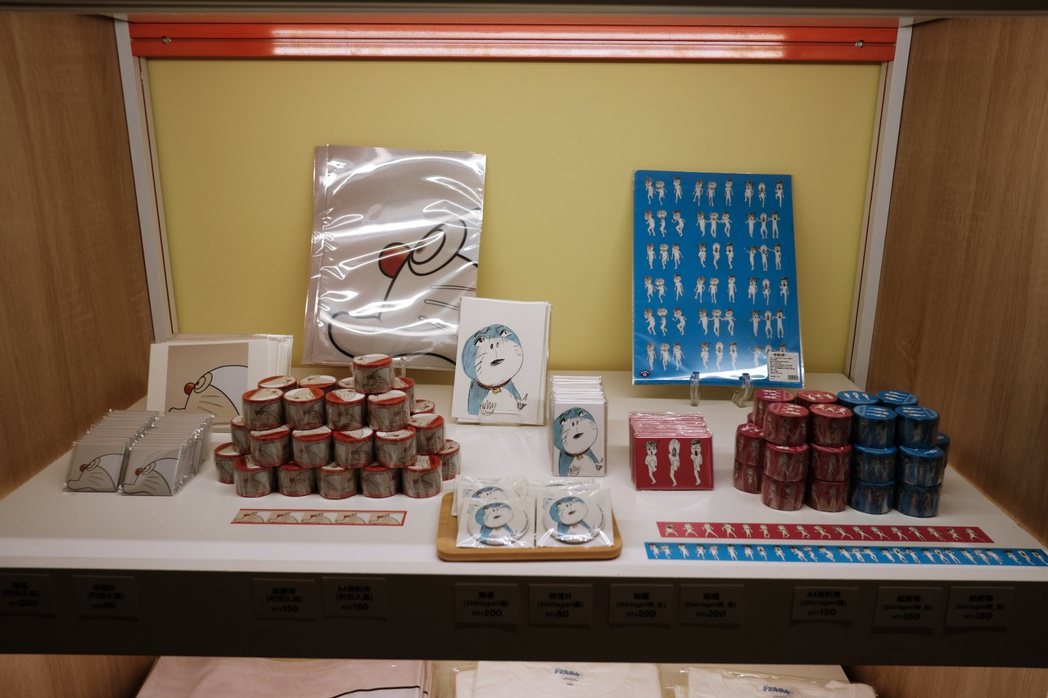
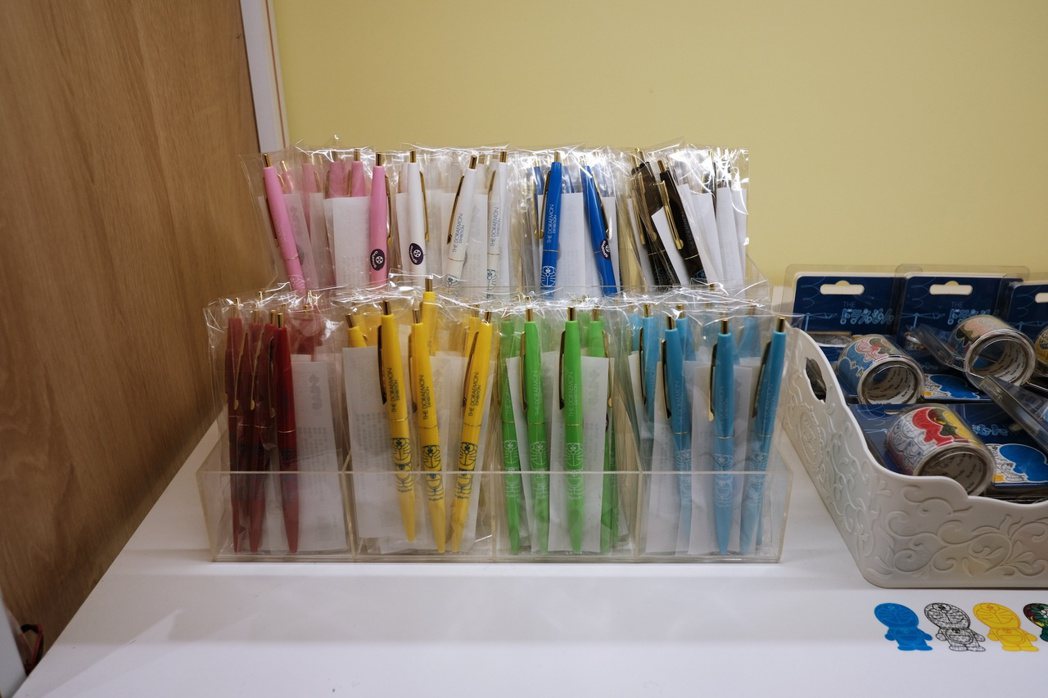
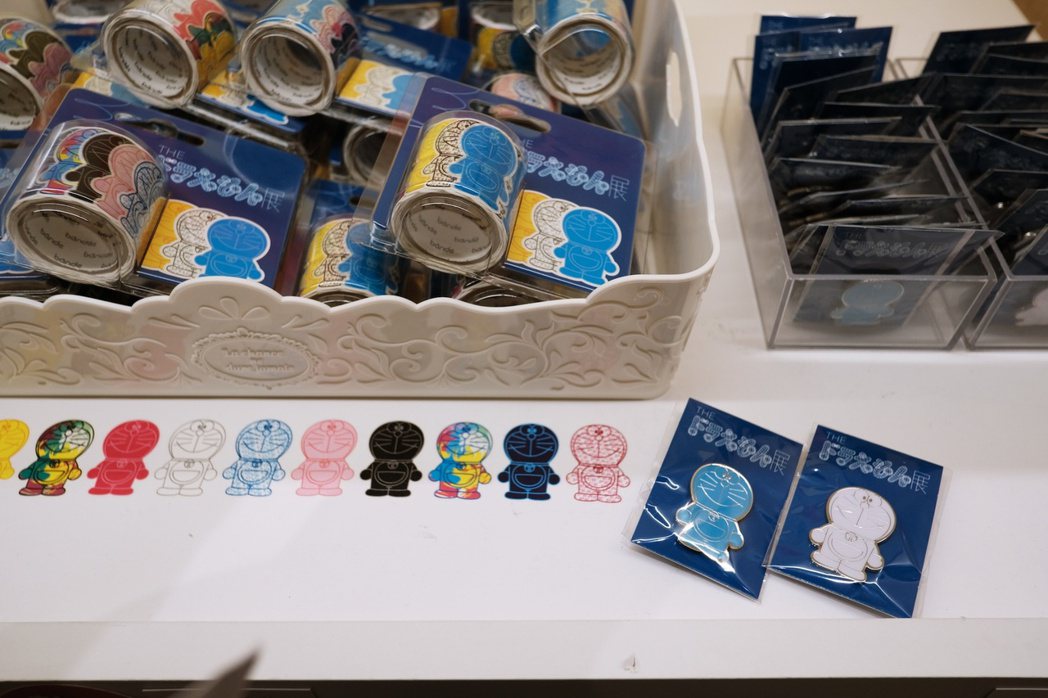
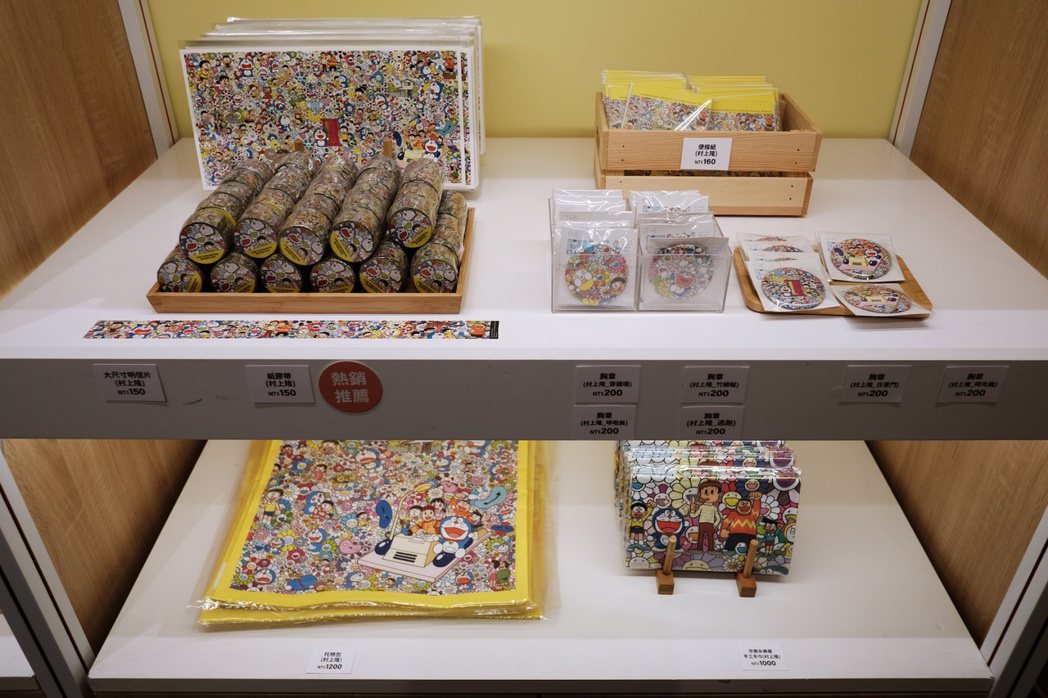
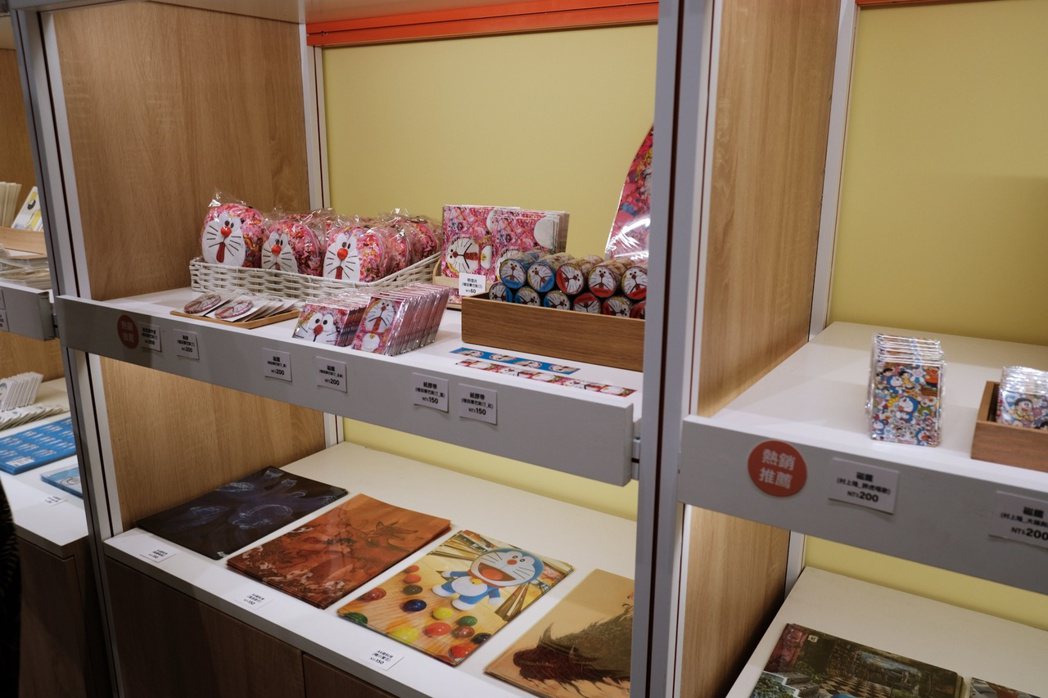
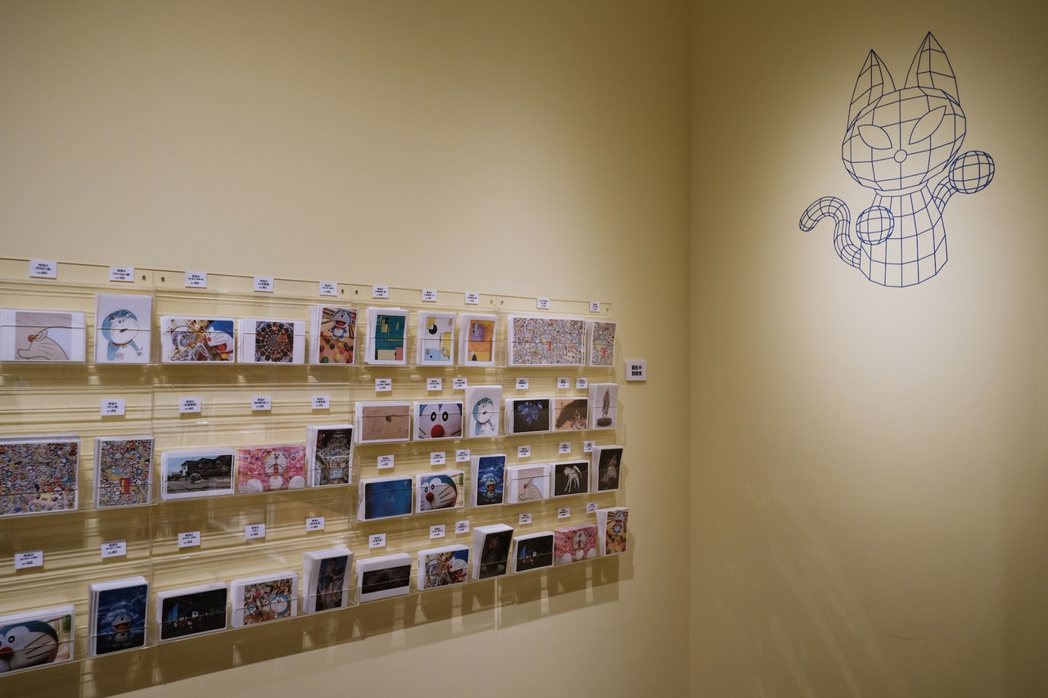
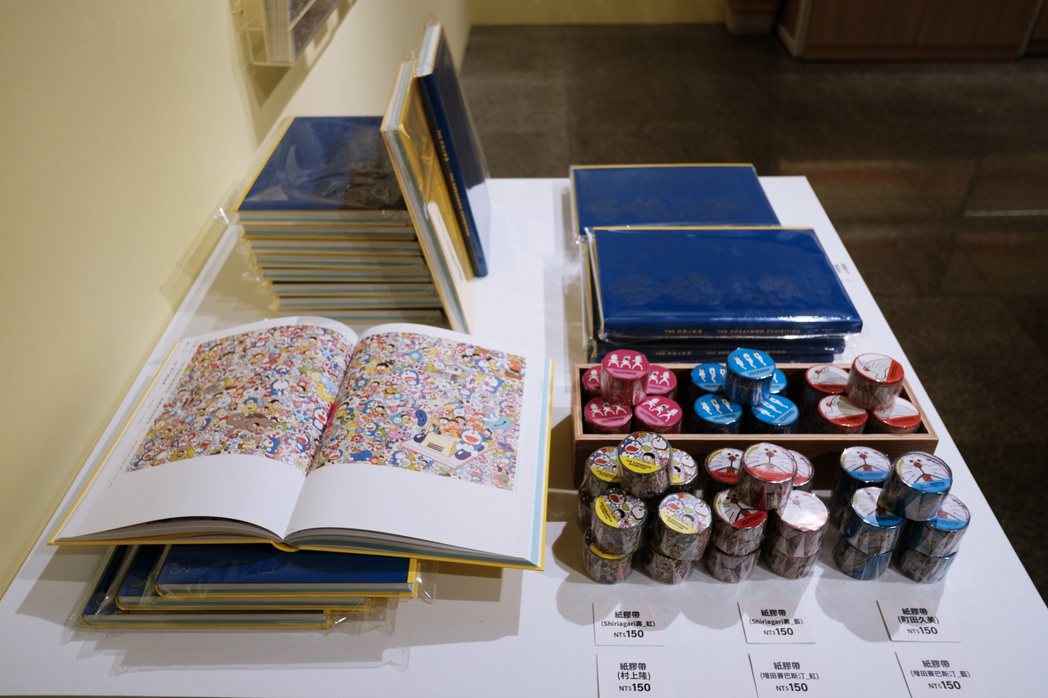
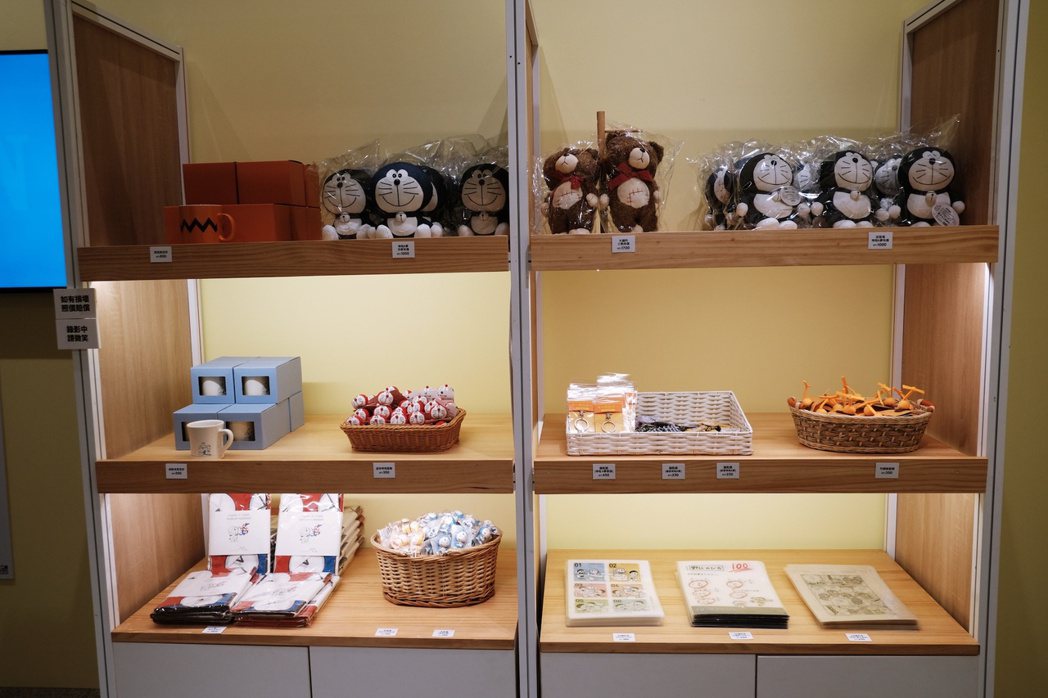
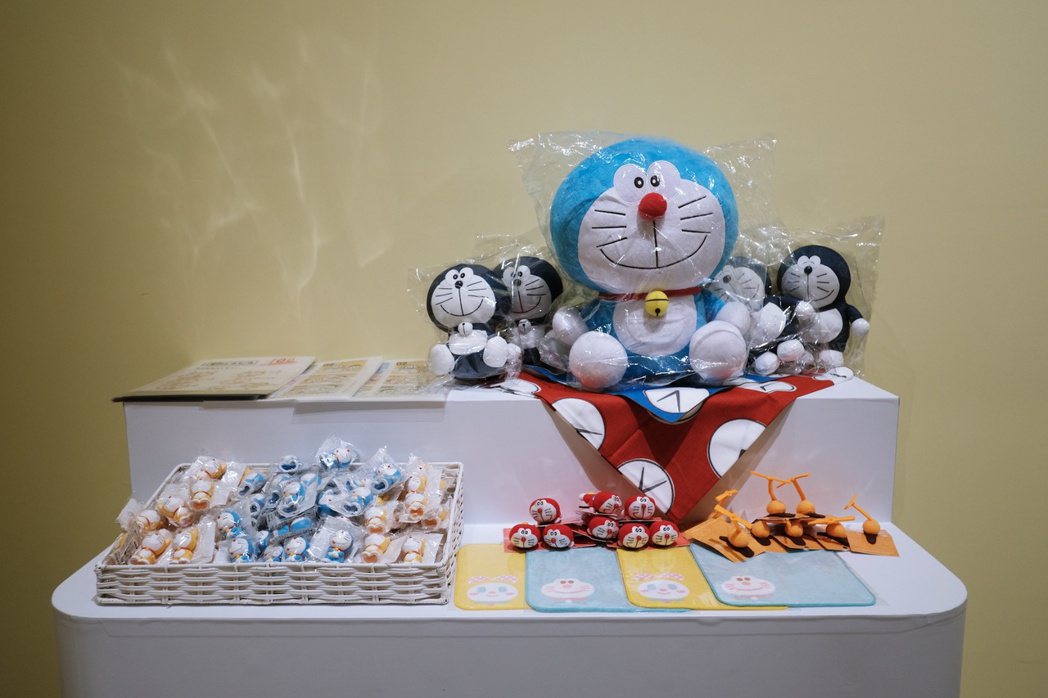
各位日間學士班同學,大家好,
本學期第13-17週(112年12月3日-113年1月6日)「112-1學期日間學士班UCAN職場共通職能及專業職能診斷問卷填答」活動開跑!
活動目的: 依照教育部大專校院就業職能平台(簡稱UCAN),學生檢視自身專業職能具備程度,該問卷為自評檢測,非學習評量,不影響學業成績,請放心地照實填答。
參與對象: 本校日間學士班學生
活動期間: 112年12月3日(日)-113年1月6日(六)
填答方式: 請依照問卷填答SOP指引,教學簡報網址(https://reurl.cc/z6Orz7)
抽獎活動: 於活動期間(限定112/12/3-113/1/6)完成UCAN職場共通職能&專業職能共2份問卷之有效填答,即可參與抽獎,1仟元禮劵限量30份,詳細抽獎活動內容將公告於教學發展中心首頁。
問卷入口: 聯大學生單一入口(https://reurl.cc/NqyOyk),點選「UCAN大專校院就業職能平台系統」1. 職場共通職能2.專業職能診斷問卷。
敬祝 學業順心
教務處教學發展中心 敬啟
展覽主題:一起按下F5,重新整理Refresh35
日期:2023/11/30(四)~12/3(日)(每日AM9:00~PM18:00),
把「重新整理」的這個動作,以趣味化的方式呈現,用新奇、有趣又貼近的按鍵F5為靈感,象徵著如同按下電腦的指令鍵F5一樣,
NOVA「重新審視自我」、「重新調整定位」「向未來重新出發」,除了回顧經典,也透過未來趨勢的議題,讓大家以「重新」的概念,
一同在腦袋中按下F5,「重新審視設計」,透過NOVA的帶領,以新的視角一起探索設計的多重角度,與未來生活中的樂趣和無限可能。
想看看浩漢設計公司這35年做了哪些? 找機會一定要去看看

今年系友回娘家系列感謝許多系友共襄盛舉,品牌聯展
一起回來設攤分享創業笑淚史~一幕幕笑中帶淚的創業 想當初做作業時也這麼認真嗎 > < ~
這次活動有隨到手做體驗課程.設計職涯系列講座.手作工作坊,還不手刀報名!
活動時間 112年11月24日-25日
活動地點 工設系一樓展示廳

隨到手作/體驗
11/24 13:00~18:00
【來本冊子】鎖鏈式小冊子 (限量10名)
【湖籽】手工紙燙金體驗 (限量40名)
【袋代】皮革卡片夾、手機袋、機能布袋 (限量30名)
【菓實紀元】植物精油基礎調香 (限量20名)
【想學設計】藺草小動物 (限量30名)
11/25 10:00~16:00
【來本冊子】手工書 (限量15名)
【袋代】皮革卡片夾、手機袋、機能布袋 (限量30名)
【想學設計】藺草小動物 (限量30名)
11/25 10:00~11:00
設計師座談會
11/25 14:00~15:00
新人設計師職場工作分享
11/24
13:00~14:30 【想學設計】藺草文化及手作體驗工作坊(限量20名)
14:00~17:00 【小鳥松】小鳥手作工作坊(限量12名)
14:30~15:30 【湖籽】手工抄紙工作坊(限量20名)
15:30~16:30 【湖籽】手工紙燙金工作坊(限量20名)
16:00~17:30 【想學設計】藺草文化及手作體驗工作坊(限量20名)
以下系友限定活動
11/24 18:00~20:00 系友忘年火鍋會
11/25 11:00~14:00 系友回娘家包餃子會
2023想學設計 系友回娘家 報名網址 https://sites.google.com/gm.nuu.edu.tw/college-design/?fbclid=IwAR2DbvrMy2z0Hy15wxZrsRO-Q1e4yCEO6GXu0AlbpvD1UXIfz-4W14kYsK0
▋2023 臺北文創天空創意節〈末未之間 ARE ERA〉
▋日期|2023/10/26(四)-11/26(日)
▋時間|11:00-20:00
▋地點|臺北文創文化廣場(松山文創園區內)
臺北文創天空創意節從 2015 年舉辦,今年為第七屆,累積超過 2,200 位創意者投件,扶植作品超過 70 件,總觀展人數超過 63 萬人次,是當前國內最具實驗性的文創人才扶植平台。每屆甄選出優秀新銳作品,由臺北文創提供全方位的策展資源:單件計畫 120 萬或 60 萬的製作費、臺北文創文化廣場一個月的展出空間與媒體行銷。
透過這樣串聯製作、指導、展演空間與行銷的資源平台,臺北文創天空創意節協助年輕創意工作者嶄露頭角,更希望在這樣徵件的過程中,挖掘更多隱藏於各界臥虎藏龍的創意靈魂。
▋主辦單位|臺北文創基金會

本學期邀請到浩漢設計公司(NOVA DESIGN) 總經理吳奕成總經理蒞臨,分享機車設計流程及產業趨勢!!
浩漢設計公司是台灣規模最大的設計公司,除了各類產品設計外,也執行三陽工業機車設計。後續亦將參訪內湖浩漢設計及三陽工業中壢廠進行產業參訪導覽,機會難得請同學把握!
時間: 2023/11/1 (三) 13:00-15:00
地點: 二坪山校區 國際會議廳
此演講為自主學習課程,請於下午13:30前完成簽到並於11月6日下午17:00前繳交紙本心得報告

演講者:龍華科技大學產品設計系
助理教授 林建志
時間:2023/10/26(四)13:00-15:00
地點:嘿嘿劇場

苗栗縣政府文化觀光局辦理「111年度苗栗縣社區營造及村落文化發展計畫」,累積了近半年的計畫執行和課程、活動辦理,再度迎來豐碩成果,縣府團隊將與公所、社區、青年、產業等各界夥伴們展現苗栗縣111年度社區營造成果展—「老適在一起生活節」,並以「玩」來串聯,以大家總是在一起玩的共學共樂,以及輕鬆氛圍結合文青與視覺展示理念,打造好玩、好逛、好舒服的年度成果展,邀請大家共同挖掘豐富多元的家鄉寶藏。
— 活動資訊 —
✔ 活動日期|111年12月3日(星期六)
✔ 活動時間|10:00-16:00
✔ 活動地點|苗栗特色館-舞台廣場(苗栗縣公館鄉館南村14鄰館南352號)
✔ 指導單位|文化部
✔ 主辦單位|苗栗縣政府
✔ 承辦單位|苗栗縣政府文化觀光局
— 核心理念 —
✔ 「老適在一起生活節」是傳達的一個精神,希望我們的社區是適合長者生活、青年返鄉的良好環境,透過公所、社區、青年、產業等各單位的共同努力,彼此以「一個人走得快,一群人走得遠」的同在步伐邁進,期勉照顧縣民銀髮健康的同時,接軌新一代青年,創造共榮共好的產業及生活品質。
✔ 總計擾動2個公所、11個社區團隊共同參與計畫執行,更與8個青年團隊合作,讓社區資源、產業特色、職人理念,透過多元的管道被看見,加以創新並傳承推廣。
